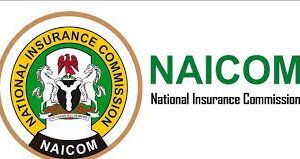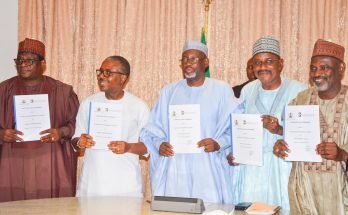The newly appointed Commissioner for Insurance (CFI), Mr. Olusegun Omosehin, accompanied by his deputies, Dr. Usman Jankara and Dr. Olawoye Gam-Ikom, recently visited the Nigerian Insurers Association (NIA) to discuss collaborative efforts for advancing the insurance sector.
In his remarks, Mr. Omosehin reiterated his commitment to fostering a robust and stable insurance industry that prioritises the protection of policyholders and beneficiaries.
He stated, “My mandate is to ensure a very safe, sound, and stable insurance sector that can protect policyholders, and consumers, and build public trust in the insurance industry.”
He further outlined his administration’s agenda, focusing on increasing insurance penetration and ensuring efficient and prompt claims settlements.
Mr. Omosehin also underscored the importance of compliance with industry regulations to achieve NAICOM’s vision and urged stakeholders to prioritise regulatory adherence.
In response, NIA members, represented by their CEOs, shared their concerns and expectations that will help realise NAICOM’s vision for the industry.
They called on NAICOM to revisit the placement of insurance business adverts for greater visibility and awareness; to support NIA’s establishment of a claims payment committee to facilitate prompt settlements of claims; enforcement of insurance for public buildings and construction projects to ensure safety; enhancing collaboration with government agencies for regulatory efficiency.
Others are digitalising agency license processes for improved speed and convenience; reconstituting the IICC committee to drive industry growth and development; supporting the implementation of the Nigerian Insurance Industry Portal (NIIP) for better digitalisation and accessibility and Collaborating with PenCom on group life enforcement to ensure compliance.
They also called on NAICOM leadership to establish a maximum retention period for claims records to improve data management; accelerating the approval of new products to drive innovation; consideration of industry perspectives in policymaking for inclusive decisions; segmenting industry players to promote specialization and competitiveness; ensuring timely approval of principal officers for leadership stability and forming strategic partnerships with the government to boost economic growth.




